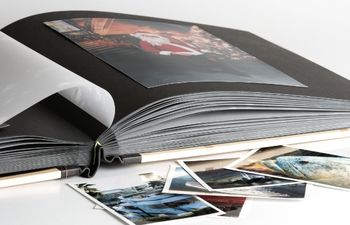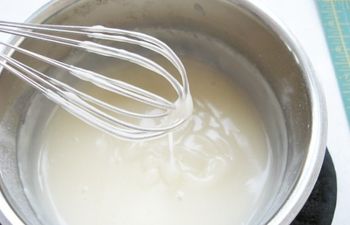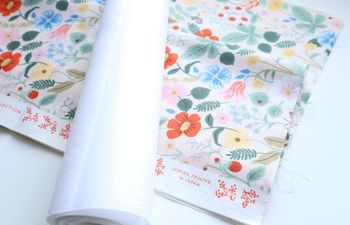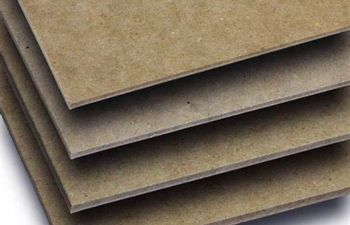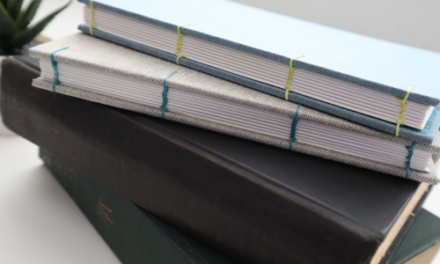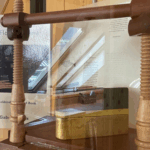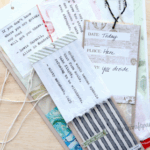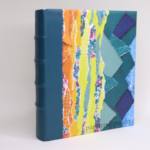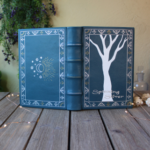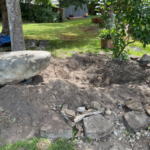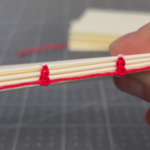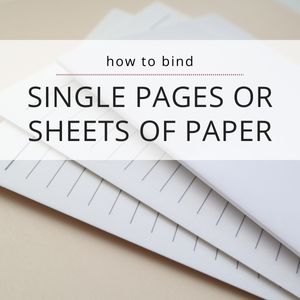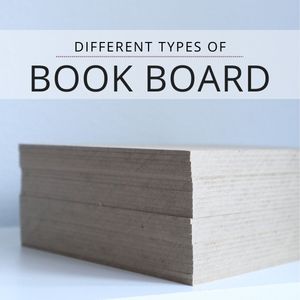Handmade photo albums protect and display our memories. That’s why I always recommend separating each page with an acid-free interleaving material like glassine sheets.
In this post, I’ll explain what an interleaving material is, why glassine sheets are perfect for the job, how to easily incorporate these into your albums and where to find them for your next book project.
First, what is an interleaving material?
Interleaving materials sit between the pages of a photo album or scrapbook to protect sensitive images or artwork. The best materials are acid-free, water resistant and lightweight. Try to choose a semi-transparent material so you can see the image behind it.
Glassine sheets are the best interleaving material for a handmade photo album.
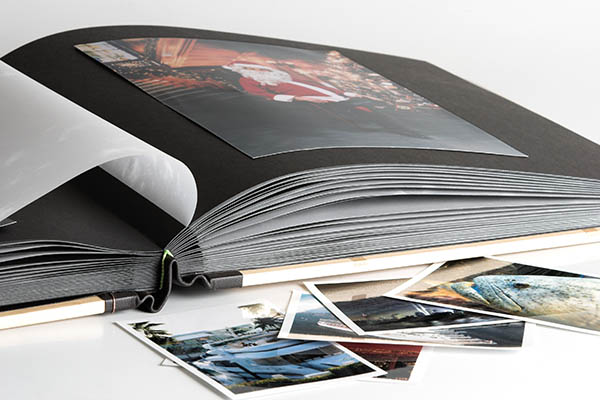
What is glassine?
Glassine paper is made from aspen, oak, birch, and gum tree pulp. First, acid is removed from the pulp. Next, the pulp is bleached and pressed into sheets of paper. Finally, pressed sheets are rolled under high pressure, heat and friction. This process, called supercalendaring, breaks down fiber capillaries. The result is a smooth, semi-transparent and highly dense surface resistant to air, grease and moisture.
Why is glassine special?
Glassine has qualities that make it the perfect choice for a photo album or scrapbook interleaving material. Here is a full list:
- strong
- smooth
- semi-transparent
- glossy
- dense / low porosity
- no coating
- resistant to moisture, air and grease
- prevents acid migration
- all natural
- biodegradable
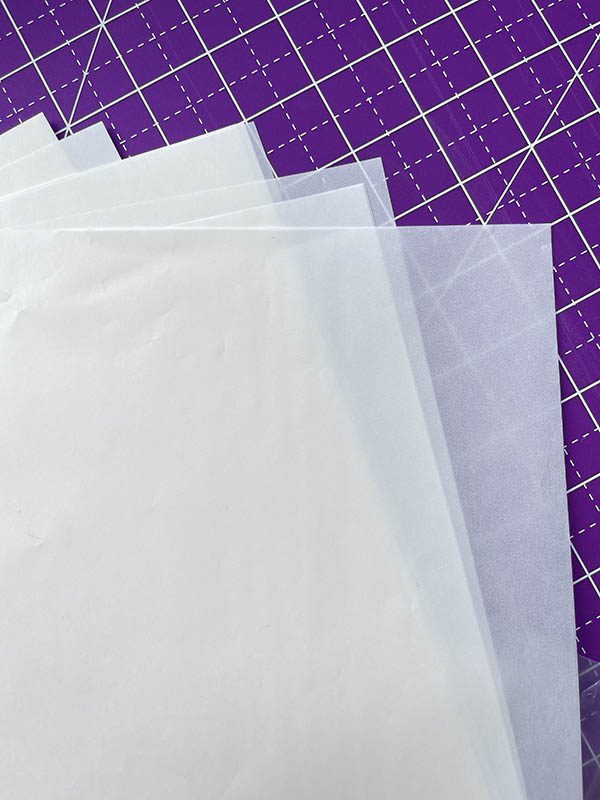
How to interleave glassine sheets
A tab separates each page in a handmade photo album. Interleaving materials are glued to this tab. Since glassine is resistant to moisture, it must be attached using a double-sided adhesive.
I personally use a 1/4″ wide roll of strong tack adhesive. For larger albums, I may use 1/2″ wide roll or double up on the 1/4″ strips. Any double-sided, archival quality adhesive will work.
Glassine alternatives
Glassine sheets are very unique. I can only offer two possible alternatives: polyester archival film and archival paper.
Polyester Archival Film
Polyester archival film is a tough, clear, 100% synthetic polyester resin film free from plasticizers. It is resistant to water, grease and high temperatures. The only downside: fingerprints are visible. This can be annoying for photo album viewing.
There are many different names for polyester archival film (SH72S, Mylar, Melinex, etc.). Check the label to see if it has been verified as archival quality per the Library of Congress.
Archival Paper
Archival paper is made from cotton fiber pulp, which means it is naturally acid-free. This paper is archival quality, durable and usually buffered to prevent acid migration. It’s not translucent, making it hard to see the images beneath it. This makes it less desirable for photo albums and scrapbooks.
FAQ
Q: Is parchment paper the same as glassine?
A: No. Parchment paper is a cellulose-based paper that also contains silicone. While heat resistant, it is not water resistant.
Q: Is wax paper the same as glassine?
A: No. Wax paper contains an external wax coating (usually paraffin) that will melt under high temperatures. This makes it resistant to water, but not heat. The wax could melt and spread over sensitive photos and artwork, so it is not recommended as an interleaving material.
Q: Can vellum be used in place of glassine?
A: Not recommended. True vellum was historically creating using animal skin. Today, the word is used to describe a specific paper finish and should not be relied upon as an indicator of quality or durability. If you find a vellum paper that is archival quality with similar characteristics to glassine, it might be worth trying.
Q: Can I use buffered tissue paper for interleaving?
A: Yes. Buffered tissue paper can be used for interleaving, but it is not as strong or translucent as glassine. In addition, it creases easily and shows grease marks from fingertips.
Where to find these items
Glassine sheets:
- Talas Online offers some beautifully patterned glassine sheets
- Lineco offers unbuffered glassine sheets
Polyester Archival Film:
- Museum Services Corp. offers sheets of polyester archival film
- Talas Online has some great archival mylar sheets
Archival Paper:
- Archival Methods has great options for archival interleaving papers
- Talas Online offers Legion archival paper
More bookbinding goodness
✨ What tools do I need to get started bookbinding?
- Bookbinding Tools & Supplies Quick Start Guide – learn all about book making tools, which to buy first & where to go online
- Pick up my popular Complete Starter Bookbinding Tools Kit – all the bookbinding essentials in one spot
🌟 Looking for a simple way to start making books?
Try a Complete Book Materials Kit. Each one has everything you need (+ tutorials & videos) to make a beautiful book without all the fuss.
Thank you for taking me along on your book making journey!
Misty
